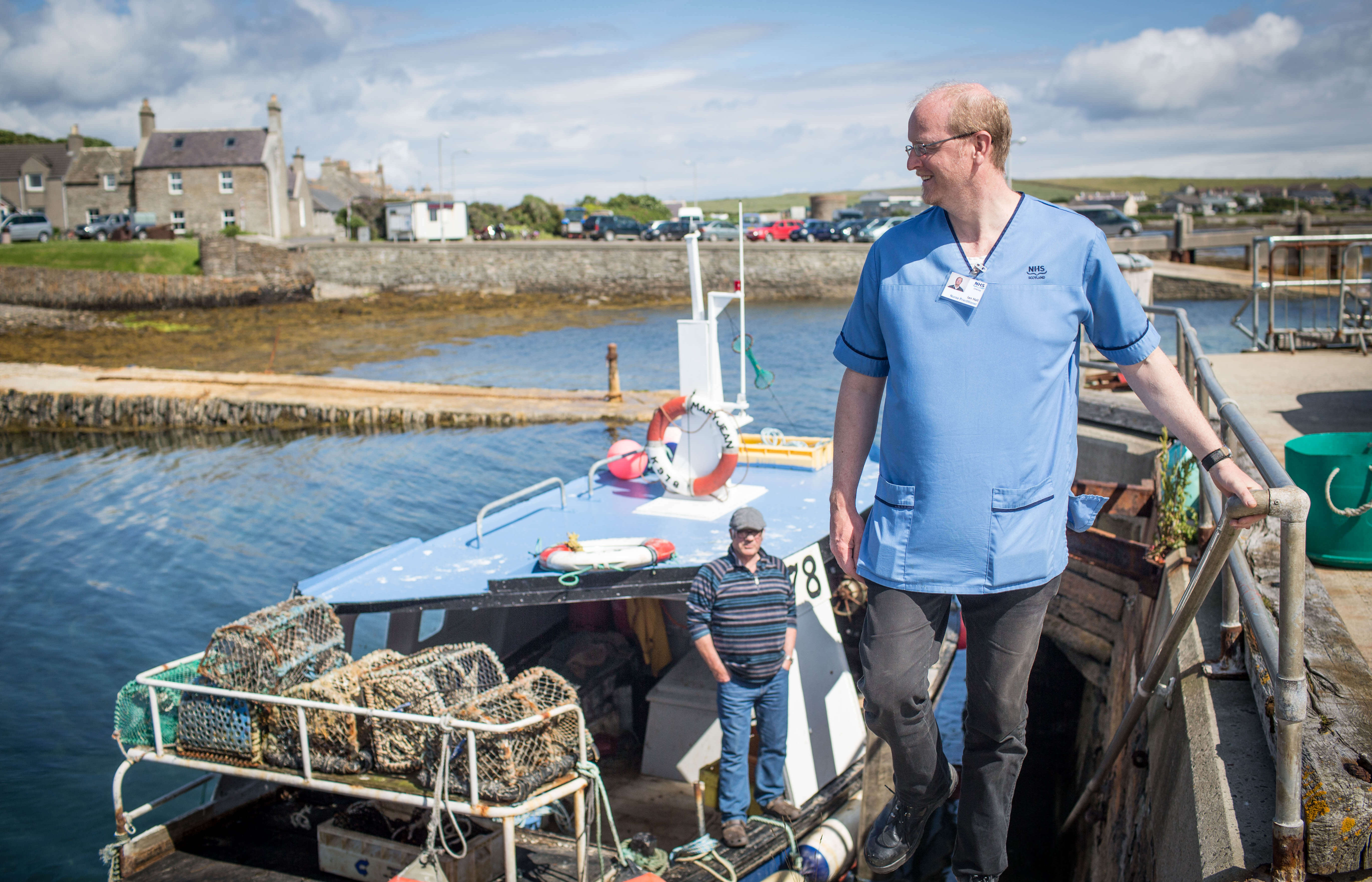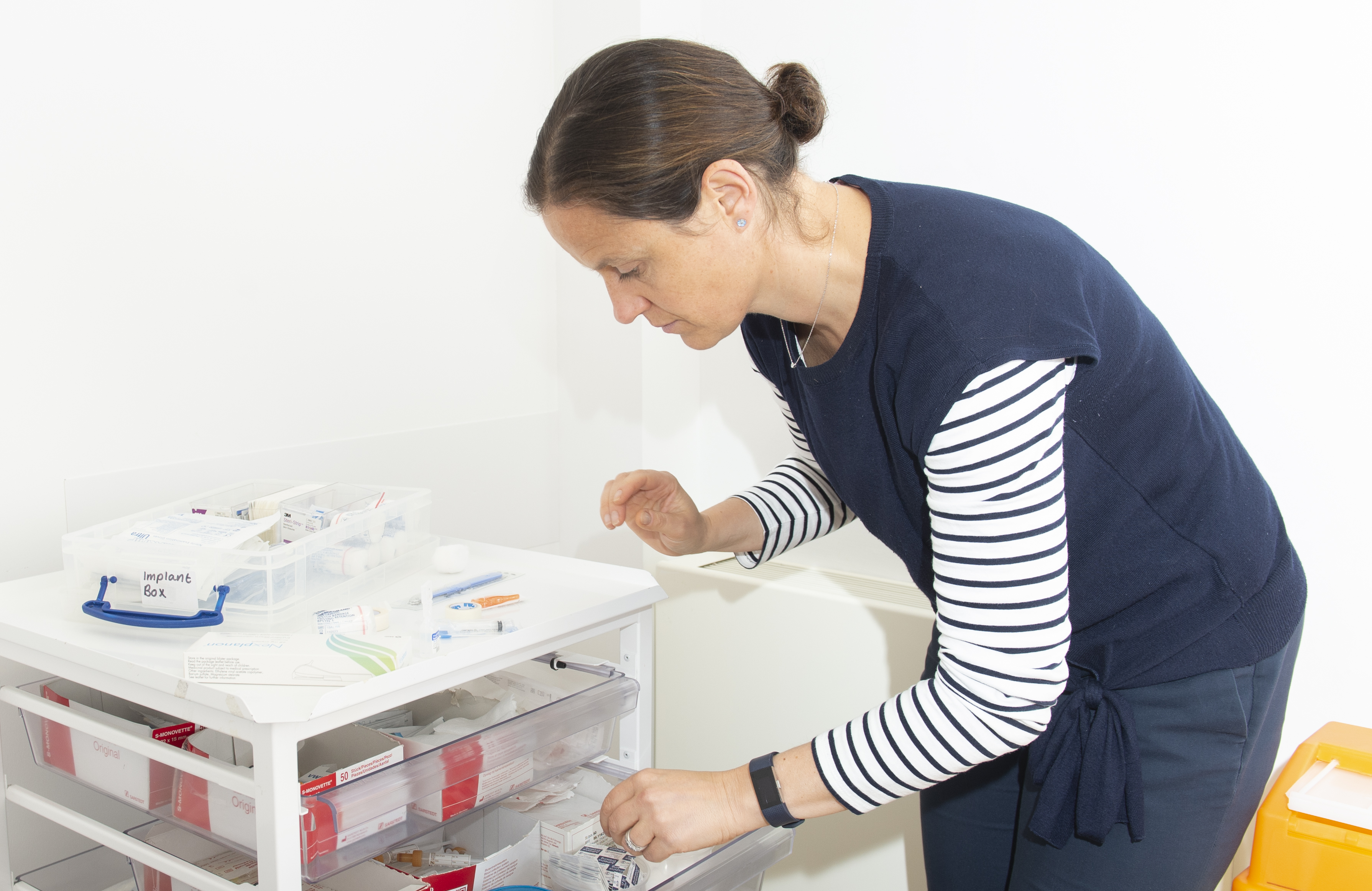
Sexual health nurse
Sexual health nurses work in a wide range of settings including schools, GP practices, outpatient clinics and in community outreach. They deliver health screening programmes, health promotion and health education and they provide care that enables the prevention of sexually transmitted infections and unintended pregnancies. Sexual health nurses often work with particularly vulnerable groups such as those wo have experienced sexual violence.

Kirsten Kernaghan
I have been working in the area of sexual health with a focus on young people now for the past 16 years. My current role is as an Advanced Nurse Practitioner based at NHS Lothian’s Chalmers Sexual Health Service in the centre of Edinburgh. We work hard to ensure we provide services in places and at times where young people (aged 13-18) can attend, so we work around school hours and in a range of areas across the Lothians. We offer a non-judgemental, confidential service to all young people who need it, providing a full range of contraception, pregnancy testing, advice, sexual health screening and treatment. The service is for everybody – regardless of what school they go to, their home life or background.
I went into nursing initially because I wasn’t very good at sitting still. I was never going to have a Monday to Friday, sit-at-a-desk type job. I think I chose nursing because I liked the variety – it sounded quite exciting and as a student I thought it would allow me to see the world. And it did. During my nurse training, I went for three months to work in Israel, and I also spent a summer working in Kenya. There I became really interested in HIV and infectious diseases, so by the end of my nursing degree I knew that was what I wanted to do. My first job was in Infectious Diseases at the Western General in Edinburgh. From there, I took on a role in the newly created Healthy Respect Team which offered innovative ways of offering chlamydia testing and treatment in non-clinical settings to increase access to testing with a focus on young people.
I am an advocate, fighting for young people and flying the flag for the service we provide. I was Services Coordinator for Healthy Respect for nine years and was the lead for creating confidential services for young people located in schools, or community spaces where they felt welcome. I feel strongly that young people need a safe, confidential place to go to discuss all aspects of health and wellbeing in a location that is convenient for them. Within my new role I took on the lead for Healthy Respect + (HR+) clinics, which are more clinical based services. I hope the impact of the work I’ve been involved with so far is that all young people know where there is a sexual health service with people they can trust. There is a young girl who has visited the service regularly over the years who called me out of the blue recently because she was in a challenging situation and didn’t know where to turn. For me, it’s a huge thing that I’m the person she chose to phone and that I was able to make a difference.
I have years of experience in building trusting relationships with young people and an understanding of the issues and challenges facing young people as they explore and develop their sexuality. As an ANP, I have advanced clinical expertise in sexual health. The fact that a young person has even set foot in one of our services can be a huge thing for them and it’s about showing them they’re welcome and I’m there to help and support. If you aren’t open, friendly, and nonjudgmental they just won’t come back.
Another aspect of my job is breaking down barriers and showing what the service is about and it’s not an intimidating place to be. There’s also an element of needing to be unshockable – a lot of young people will try and test you and see what your reaction will be. It’s about offering them a safe space to talk rather than reacting in a way that reinforces their (often negative) view of professionals. I try to say, “there’s nothing you can’t tell me, nothing can’t be solved”. Quite often, they think their world is over and I have to offer reassurance and show how we can figure out a plan to move forward.

Sophie Reymbaut
As a Sexual Health Outreach Nurse, every day brings new challenges, and no two days are ever the same. This role, which was established after a public health review is incredibly varied. The clinic caters to women facing multiple disadvantages such as homelessness, addiction, criminal justice involvement, and/or transactional sex, a group with significantly higher health risks, including a 12-fold increased risk of mortality. Many of these women have experienced trauma and gender-based violence, making it difficult for them to access traditional healthcare services.
The aim of the outreach nurse post is to take services to where the women are, build trusting relationships and raise awareness of how they can access care and what that care looks like. My role also involves linking with other services that support women.
The outreach role is to oversee the service, working closely with the women and partner agencies, such as homeless accommodation, harm reduction services, and hostels, to build relationships and empower and support women to engage with their sexual health.
My work is deeply rooted in a trauma-informed approach, and every day, I interact with women in settings where they feel safe and familiar, aiming to provide continuity and build relationships. This often involves going to women’s shelters, hostels, and other places where women with significant disadvantages are. I educate both the women and staff about sexual health, contraceptives, STI testing, and cervical screening, with the goal of normalising these conversations and offering support.
A typical day in this role begins with checking the dedicated phone line and email for appointment requests, referrals, or follow-up communications from both professionals and patients. Much of my work revolves around following up with women who may be in chaotic or vulnerable situations, reminding them about appointments or providing health screening results. For some, I send text reminders every few weeks, hoping that one of these times will be the day they feel ready to take the next step toward care.
In addition to this, I regularly visit ‘saunas’ where transactional sex occurs. These visits, which are done in partnership with our partner organisation, help build relationships and provide a safe space to discuss sexual health, contraception, vaccinations, and cervical screening. While health may not always be the first priority for these women, our outreach efforts aim to provide information and support, empowering them to make informed decisions about their health.
Every second week, my colleague and I deliver condoms and lubricant, along with friendly conversation, at these venues. Over time, we’ve built rapport and trust with both the women and the businesses that operate in these spaces. When women are ready to attend the clinic, we continue to provide them with a familiar face and a safe, supportive environment for more in-depth health conversations.
On days when I'm not at clinics or outreach visits, I attend visits with the police. These visits, often triggered by reports of unusual activities at residential properties, ensure that women are safe and free from coercion. After the Police verify their safety, I provide information about the service and how they can access sexual health care.
Thursdays are particularly busy, with a clinic running alongside services in the afternoon, and a Women-only space in the evening. These clinics offer women access to homemade, healthy food, hygiene products, and sexual health services, all provided in a welcoming and supportive environment. It’s during these times that I can offer a sense of consistency and support, especially to those women who may not otherwise feel comfortable in a traditional healthcare setting.
Another critical aspect of my role is establishing connections with women selling sex on the streets. These women are often the hardest to reach, and many never step foot in a clinic. Partnering with the, we aim to meet them where they are, building relationships and offering the same support we provide in other outreach efforts.
Despite the challenges, my role is incredibly rewarding. Every day, I have the privilege of working with women who have experienced significant trauma, and by being there for them, I can make a meaningful impact on their lives. The work demands creativity, flexibility, and a deep commitment to building trust. It’s not always easy, and the emotional toll can be heavy, but knowing that I am making a difference in someone’s life is immeasurably fulfilling.
Self-care and support are essential in this role. Regular debriefing, reflective practice with in-house psychologists, and continuous training, help ensure that we can provide the best care for the women we serve, whilst taking care of ourselves. The Outreach Nurse role is demanding, but the difference we make is unquantifiable.